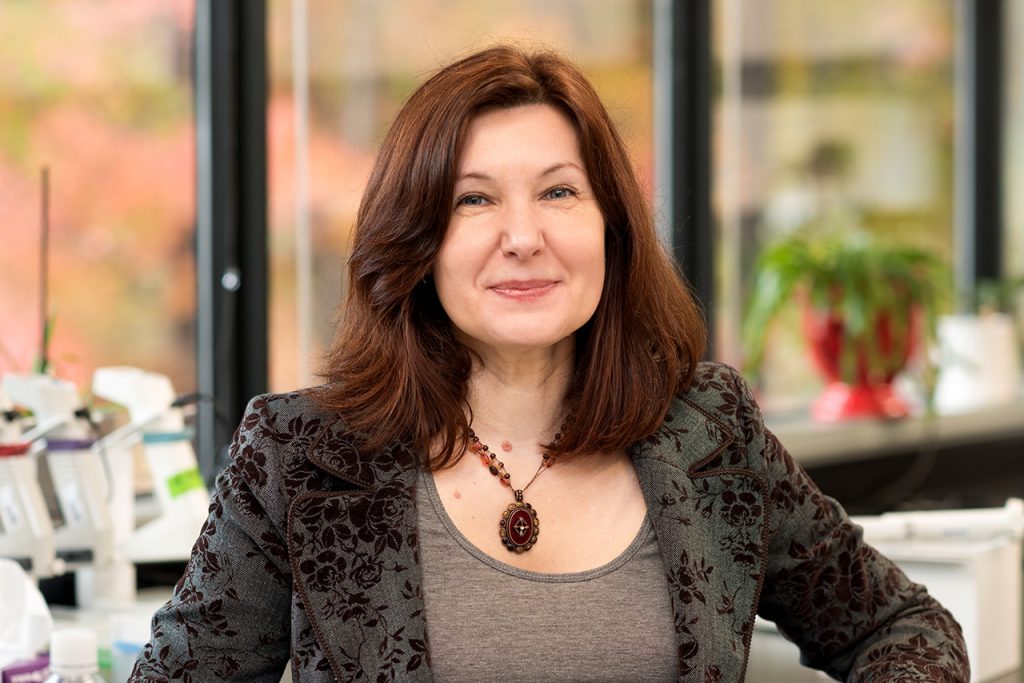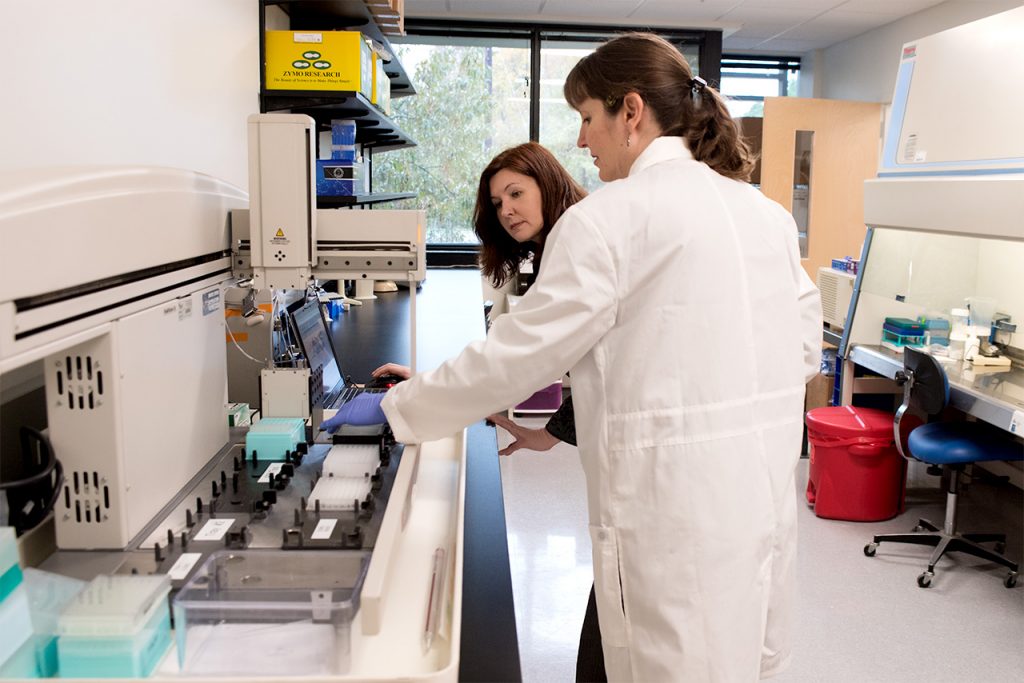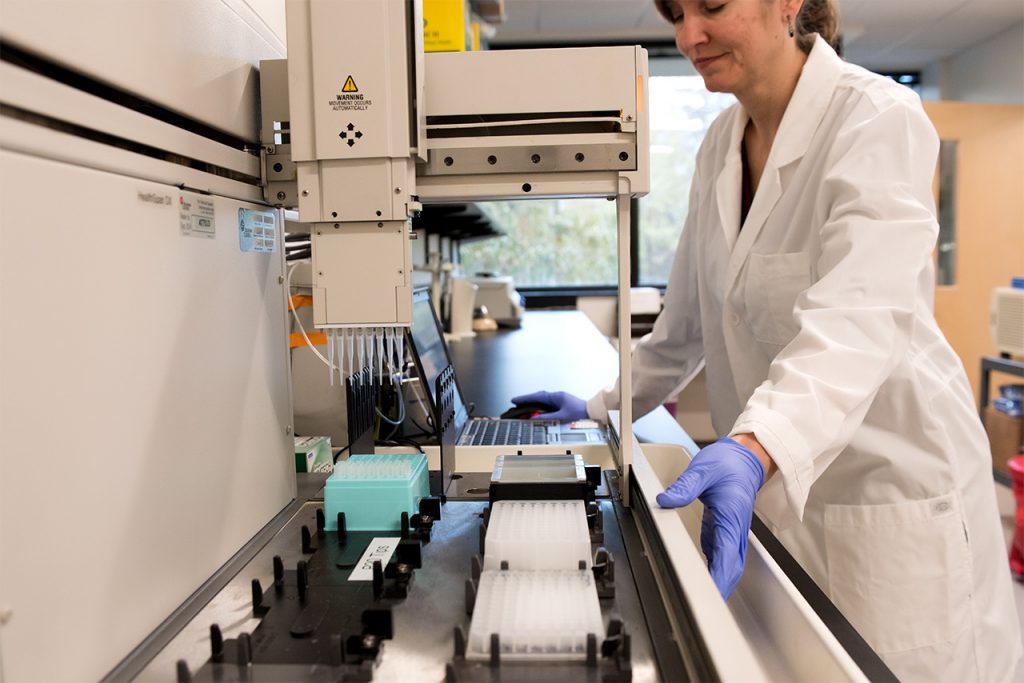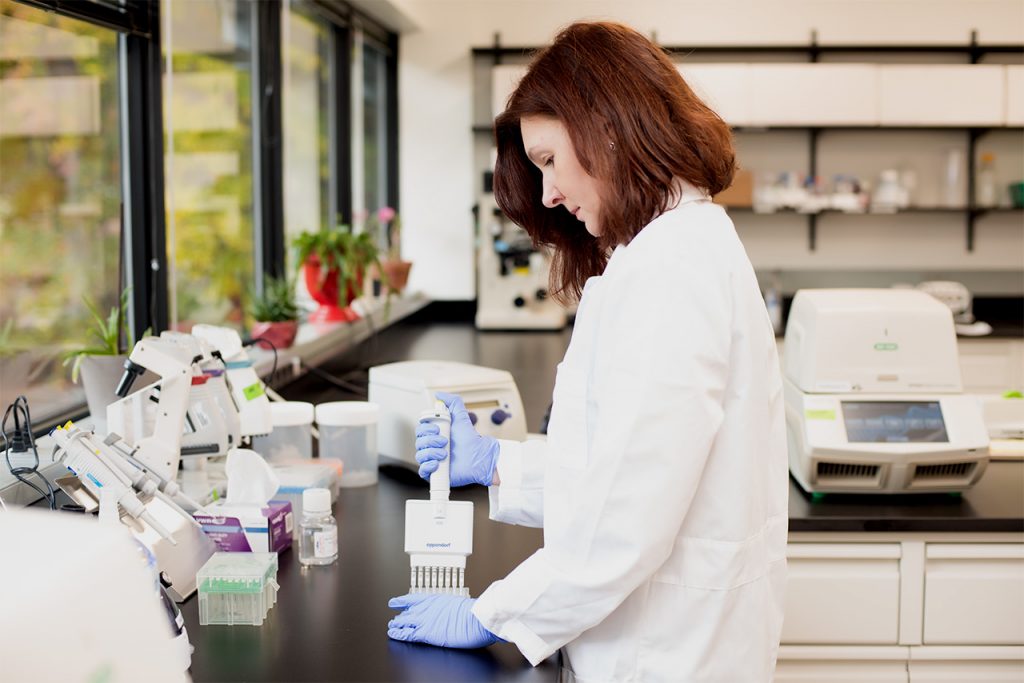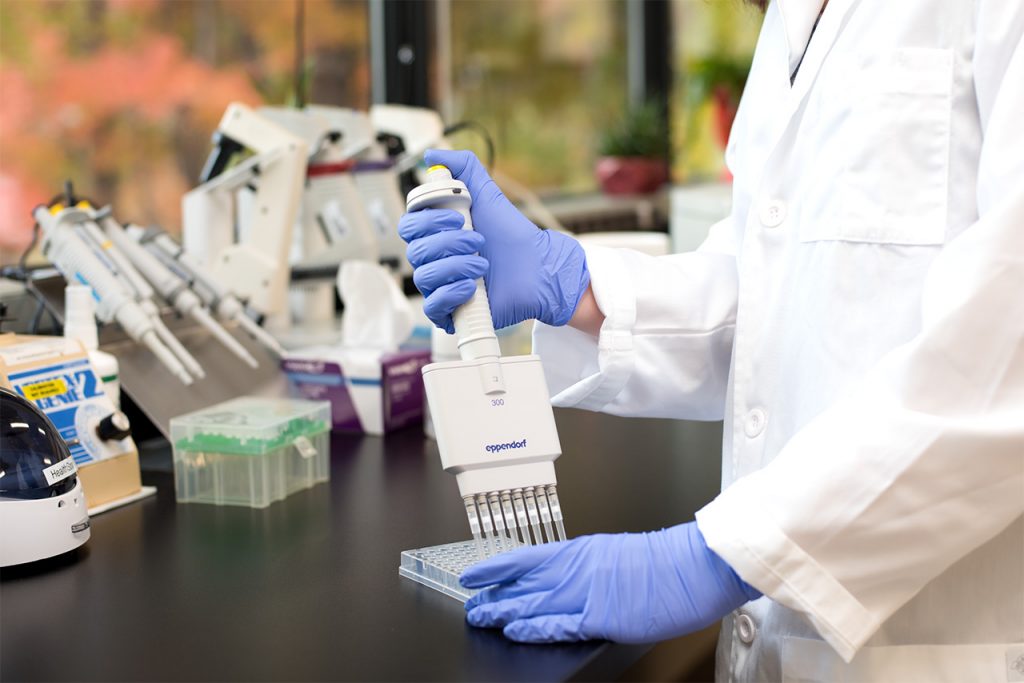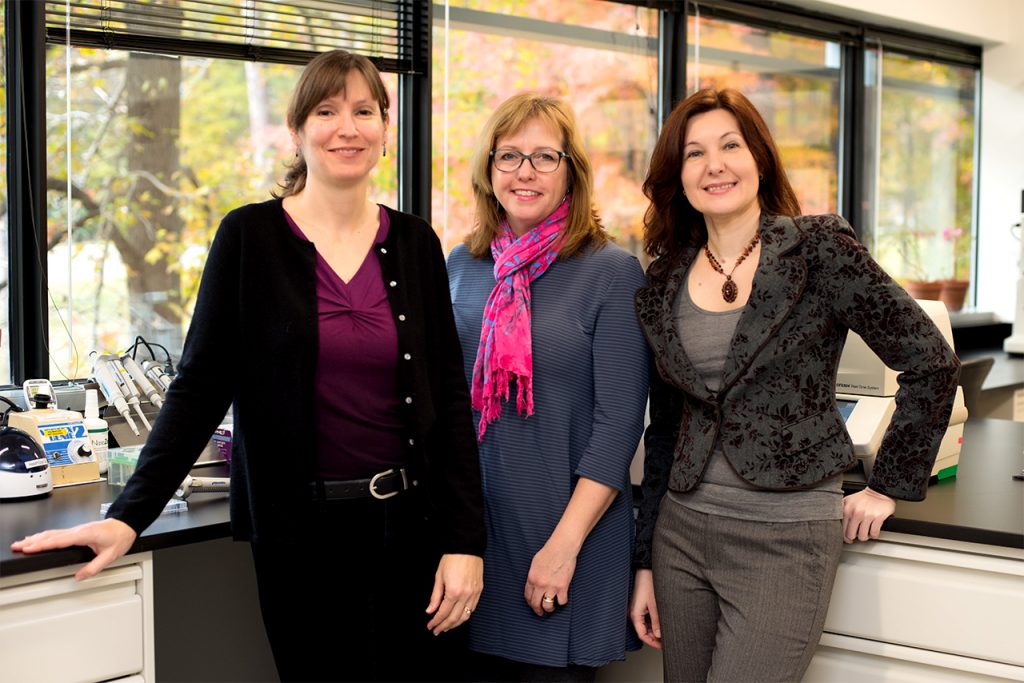Natalia Mitin
Advancing personalized, preventive medicine
Natalia Mitin is CEO, president and co-founder of Sapere Bio (formerly Healthspan DX). A former assistant professor at the University of North Carolina at Chapel Hill, Natalia is passionate about developing technologies that measure individual’s physiologic reserve to help clinicians personalize clinical care and help patients have better outcomes and quality of life. Learn how this academic scientist-turned-entrepreneur is working to advance personalized, preventive medicine.
Q & A
Tell us a little bit about yourself and Sapere Bio – what problem are you trying to solve?
I have an academic background in cancer research, and I chose UNC because it has a strong clinical research group. My goal was to address real-life problems that affect patients. As a researcher, I met patient advocates and saw their passion, the way they overcame cancer and how they advocate for the cancer community. This made it real.
When you are a scientist in the lab day in and day out it can be isolating. Going to conferences and talking with patient advocates, the amount of respect and admiration you get for trying to help them is really humbling. When you come back to the lab – that really puts a fire in you, it’s what drives you. It was really powerful to see the real-world applications of what I was working on.
I was a faculty member for almost ten years at UNC, but I felt I needed to do more – create products that could go to the patient quicker. Serendipitously, a faculty member a floor above me had an idea and was looking for someone to figure out if it has legs. While I have never worked with Ned Sharpless before, his lab was known for a cutting-edge research on the intersection of basic and clinical research. I took one look at the technology, and I was sold. We formed a company in June 2013, and I was employee #1 for about two years.
At Sapere Bio, we seek to advance personalized, preventive medicine, to translate the rapidly advancing science of aging into healthcare strategies for individual patients. A person’s age is a single greatest risk factor for adverse outcomes from any medical procedure or therapy. As we age, that risk increases. Also, as we age, there is a much larger chance that our chronological age and our real, biological age will not match; thus, creating a black box of risk for a physician. Today, you can’t reverse aging but you can slow it down.
We are developing methods to measure an individual’s biologic age or as we call it – physiologic reserve. Everyone ages differently depending on genetics, environment and lifestyle factors, and we can measure aging in your blood. As a person gets older, healthy, normal cells become senescent- the measurement of those cells can be used to determine your physiologic reserve and select proper treatments. This allows us to better understand an individual’s risk of disease initiation, disease progression, treatment response and adverse events.It’s the precision medicine of today. Proper treatment selection ensures that you get the best treatment that balances benefits and risk based on your individual aging profile. Currently, we are working on our first product and have others in the works. At the end of the day, I get to create things that I see being used. This is what drives me and my team.
How are you taking an entrepreneurial approach in your work – and how does that approach amplify the problem-solving capacity of your work?
When I hire people, it doesn’t matter where they worked before. What matters is if they have an entrepreneurial approach and mindset. Do they think with an entrepreneurial mindset? Does doing something they haven’t done before scare them? If so, they should not work at a startup. Identifying people who can function as part of a team in this environment is key. It’s about being able to ask questions and then be willing to listen to the answer. If they don’t ask questions, they will never learn. If they don’t ask others for help, they will not advance. It’s about the team – we share the same values and vision – this makes it exceptional. And in a startup, some days you are a leader and others you are being led, so being able to work well with others and respect everyone’s opinion is critical.
What resources at UNC helped you on your innovation journey – and why?
There are experts at your fingertips on UNC’s campus for anything you could possibly want to know. It was great to hear stories of others on campus who were going through the same innovation journey – reaching out to them and talking to them, getting their advice, collaborating… this is huge. Talking to people who have done it, who are experts – by just walking to their office is huge. People are very friendly and will freely give you their time.
More specifically, KickStart Venture Services was amazing and an incredible resource for us. Being able to talk with others who’ve seen a lot of companies and pitches was valuable, as well as connecting us to an entire entrepreneurial network. In addition, the KickStart Commercialization Grant funded our first clinical study. This pivotal study provided proof of principle that biomarkers of aging can be used in the clinic and set us up for our $2.2M funding. We were able to receive feedback on both clinical and commercialization aspects before we started the study which was great. They were always there for us.
Can you talk about the importance of having a faculty mentor as part of your entrepreneurial journey?
I was privileged to co-found the company with Ned Sharpless. He is both incredibly smart but also extremely approachable. As a team, we worked well together. Being able to have that relationship with your co-founder and being able to have difficult conversations is a must – you have to be able to lean on each other. In general, if you have someone who can mentor you in life and help you think through situations, this is huge. A lot of times, we are too close to our idea to get perspective. Mentors can help you bounce off ideas – this is critical. In 2017, Ned accepted a position with the National Cancer Institute and divested all his holdings in the company and stepped down from the board. While we soldiered on, losing him as a visionary and a sounding board was hard.
What’s been your biggest challenge in getting your idea off the ground?
Finding good people and putting a team together can be the biggest challenge… and the biggest reward. The second biggest challenge is securing funding and building a great team can help you too.
What advice would you give to other grad students who want to hone their own entrepreneurial skills and put them into action?
If you have an idea and want to start a company – find out first if you are cut out for it. You may want to do it, but find out if you CAN do it. Talk to other entrepreneurs who’ve done it and ask them what were the challenges, what was hardest for them. You have to decide for yourself if the idea is good to launch and if you should do it now in the moment or years down the road.

 | UNC-CH
| UNC-CH
